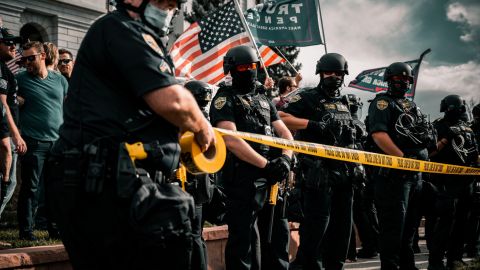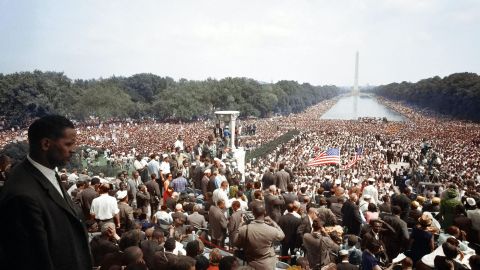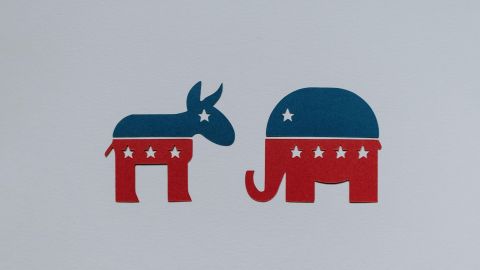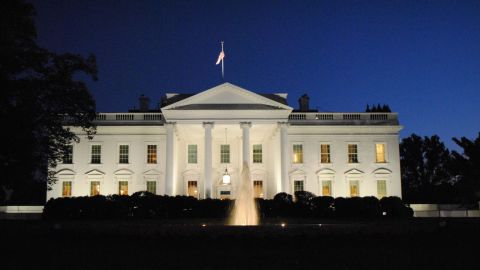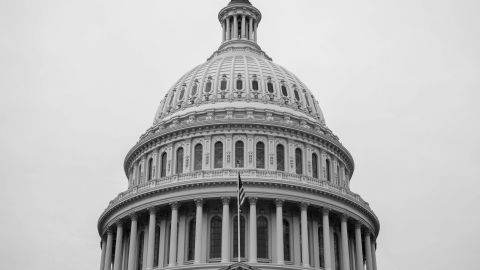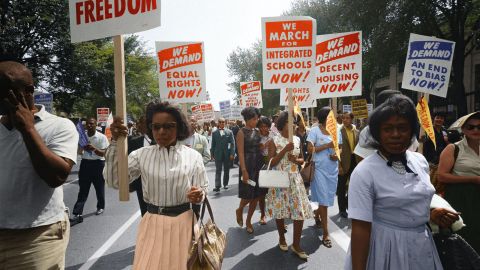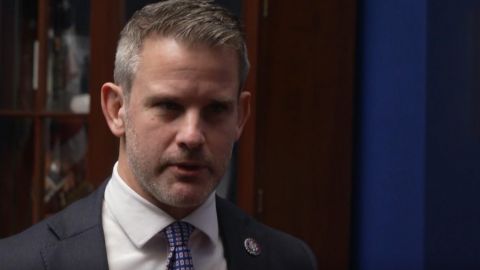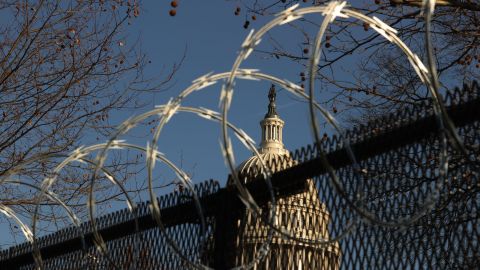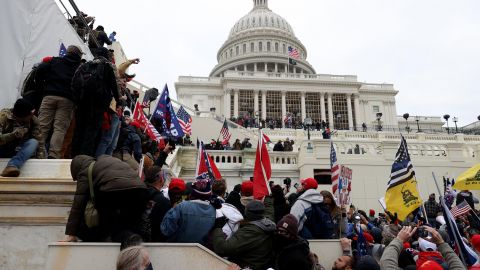In India, Brazil, Poland, Hungary, Hong Kong, Sudan and other places throughout the world, we’ve seen in recent years an erosion of democracy as populist leaders take control of countries, both through elections or sometimes through violent coups. “You’ve seen countries that had tentatively reached towards democracy after the fall of communism, most importantly, Russia, which have fallen back into pure authoritarianism,” says David Bell.
- One of the striking things
about the history of democracy
is that it expands and contracts in waves.
That is, it develops in lots of places at the same time
and experiences backsliding
in lots of places at different times.
In the 1830s was a period in which you had the expansion
of the right to vote in the United States to white men
but often poor, property-less men.
In Great Britain in the 1830s, the franchise was expanded.
In France in 1830, there was a revolution
that scared many elites around Europe and in fact was one
of the triggers for the expansion of suffrage.
So parliaments decided to expand the franchise
in Great Britain, in part with the shadow
of the French Revolution of 1830
hanging over political elite's heads, you know,
and their concern that they may very well lose everything
if they didn't give a little bit.
And so this period of the 1830s was a period
where you had, I think, a real increase
in political quality in a lot of democracies
in Western Europe and the United States.
- I am not optimistic about democracy in the world today.
I think that the tendency over the past few years
has been, in country after country,
we see the rise of these populist movements
and these populist leaders who have been able
to erode democracy, whether it is in India, in Brazil,
in Hungary, in Poland, elsewhere,
you've seen countries that had tentatively reached
towards democracy after the fall of communism,
most importantly, Russia, which have fallen back
into pure authoritarianism at this point.
I think that something will probably continue
in most of these countries that has the name of democracy
and where there might very well be the possibility
for a real democracy to reestablish itself,
but the tendencies, at least at this point,
are really quite, quite depressing and I'm pessimistic.
- For much of the 20th century, we tended to assume
that once a country became democratic, it stayed democratic.
Especially if a country was wealthy
and had a history of democracy.
The democracy was a kind of one-way street.
There were experiences of democratic breakdowns
and collapses during the Cold War, but they did,
in fact, usually take the form of military coups.
I mean, the perpetrators of the breakdown were generals.
They would call soldiers from the barracks.
They would go and take over, they would, you know
take over a presidential palace, bomb a presidential palace,
as the case of Pinochet.
I mean, they're these, the films
of the airplanes flying overhead
and bombing the presidential palace with Allende inside.
This is how democracies died.
And the idea was that then the president would flee,
the prime democratic opposition would have
to flee the country or would be imprisoned,
a military coup would come into power.
And so the way democracies died was really
at the hands of generals and military officers.
And if one looks at the data, in fact,
this is how most democracies died during the Cold War,
between 1949 and 1989.
Most democracies now die at the ballot box.
And so what that means is that politicians get elected,
there's elections, they come into power through elections,
often legitimately elected, not even with stolen elections,
but then once an office,
begin to assault democratic institutions
and chip away at democratic institutions.
And this is done through a variety of mechanisms,
the changing of electoral rules to make it harder
to get the incumbent out of power,
the stacking of courts and various institutions,
bureaucracies, media regulators, to make it harder
and harder to get the incumbent out of power.
And one of the great challenges of this
is that the incumbents in this kind of situation
often look democratically elected.
And in fact, they are democratically elected.
And the challenge and the dilemma is
to recognize this, nonetheless, as a threat.
And in fact, you know, citizens often living
in these kinds of systems don't recognize what is happening.
And so the majorities continue to think
they were living in a democracy.


